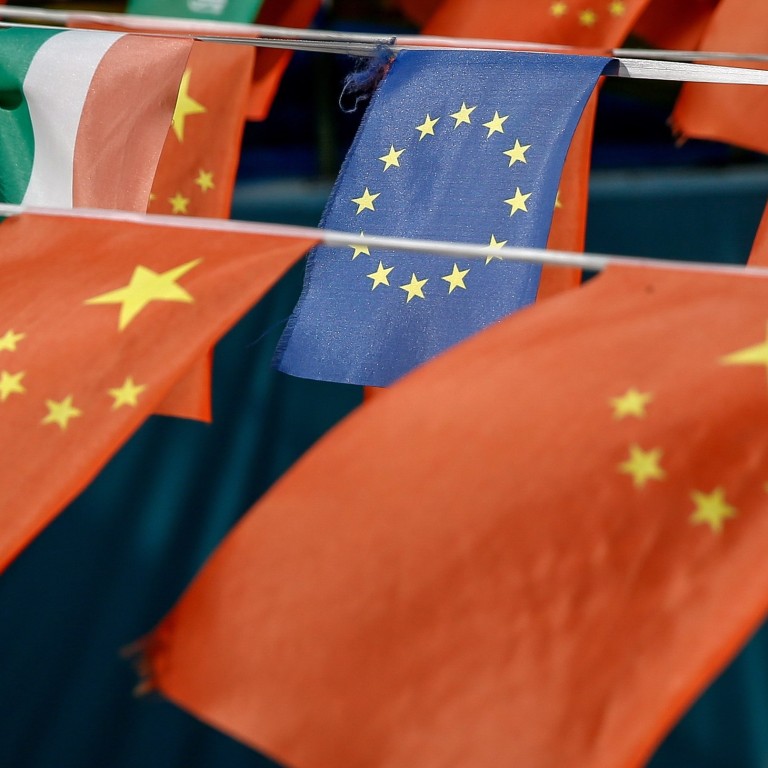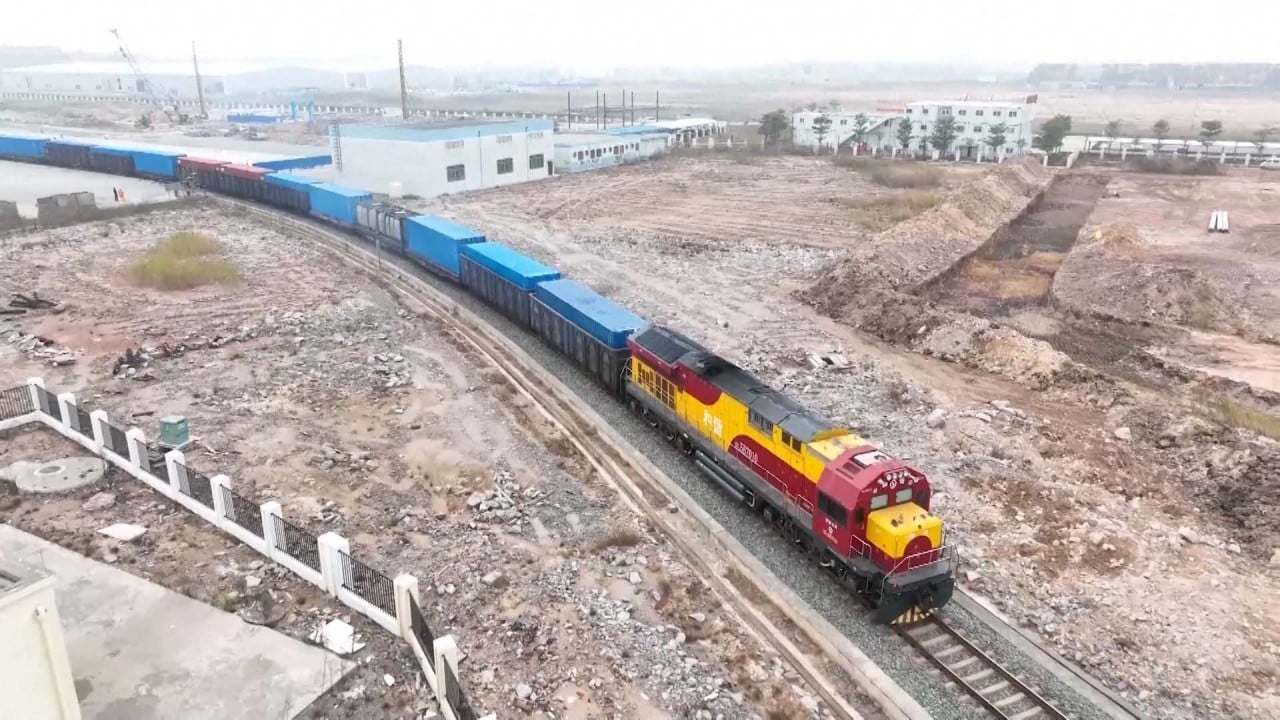
Chinese firms in Europe concerned by calls for decoupling and growing support for protectionism
- A survey of businesses operating in the EU highlighted concerns about the ‘wall’ put up around the bloc’s hi-tech and telecoms sector
- Companies also worried about the political atmosphere and the increase in negative views about China across the continent
Europe eyes new chip supply chains as Taiwan tensions risk ‘choking’ supply
The report, which was released on Friday, surveyed about 150 Chinese enterprises in the EU this summer and found that 53 per cent of respondents believed the business environment had deteriorated in the 12-month period covering the second half of 2021 and the first half of this year – the third year in a row sentiment had dropped.
It also said the deteriorating macroeconomy had created a less favourable business environment, while 38 per cent of respondents found that a hostile political environment had hit their business operations.
In total, 80 per cent of the surveyed enterprises said geopolitical dynamics, the Covid-19 pandemic and supply chain disruptions were taking an increasing toll on both the global economy and enterprises operating in the EU.
“The wall put up around the hi-tech and telecom sectors in Europe is making matters difficult for Chinese enterprises operating in the EU,” the report said.
Chinese firms expressed concerns about the EU’s “unilateral economic and trade policy instruments” – including the 5G cybersecurity toolbox and foreign direct investment screening – as well as the toolkit to mitigate foreign interference in research and innovation.
They said they worried this “might cause ‘decoupling’ of the two economies in the hi-tech sector and the fragmentation of international technological standards”.
“Some in the EU are saying that the EU should cooperate with so-called like-minded countries,” the report said.
“Rhetoric like this will only exacerbate the risk of ‘breaking’ the supply chains and value chains. Chinese enterprises in the EU hope that the ‘decoupling risk’ does not materialise for it would lead to higher costs and lower efficiency.”
Brussels has increased its scrutiny of foreign investments and hopes to reduce its reliance on China in certain crucial and strategically important sectors, including the hi-tech and digital sectors.
Beijing’s worsening relations with the US and other Western countries, including Britain, Canada and Australia, also threaten to hit companies operating within the EU.
Despite this, the estimated aggregate revenues of Chinese companies in the EU stood at €163 billion (US$160 billion) last year – up 8.4 per cent on the previous year. Some 41 per cent of the enterprises surveyed also expect higher revenues this year.
In the survey, 70 per cent of businesses believed that EU-China economic ties would keep improving and the bloc remained an attractive destination for Chinese investors. Around 80 per cent of respondents said the EU would become more important in their companies’ global strategy, with the majority planning to expand their presence across the industrial chain.
Europe also retains its allure for Chinese businesses striving for sustainable development as it values research and innovation and is full of opportunities, according to the report.
China has been the EU’s principal partner for imported goods since 2020, with trade amounting to US$828 billion last year.
In 2021, 38 per cent of the EU’s hi-tech imports were sourced from China, covering sectors such as electronics, aerospace, pharmaceuticals and scientific instruments, according to Eurostat.
How are China’s relations with Kazakhstan on the eve of Xi Jinping’s visit?
The EU is also the third-largest source of foreign direct investment in China following Hong Kong and Singapore, investing US$5.1 billion in 2021, or 3.5 per cent of the total.
“Looking into the future, mutually beneficial cooperation will remain the cornerstone of China-EU relations,” said Xu Haifeng, chairman of the CCCEU.
To promote development and collaboration between China and the EU, the report said it was vital to sustain the China-EU comprehensive strategic partnership, safeguard the multilateral trade system, ensure a fair and open business environment, and step up cooperation in finance and investment.


